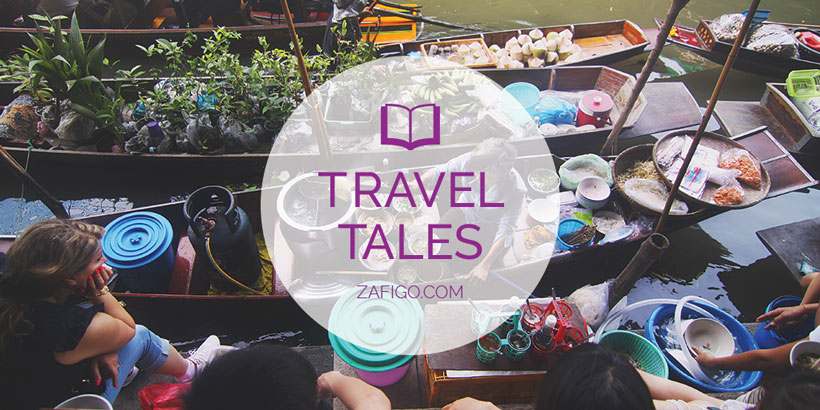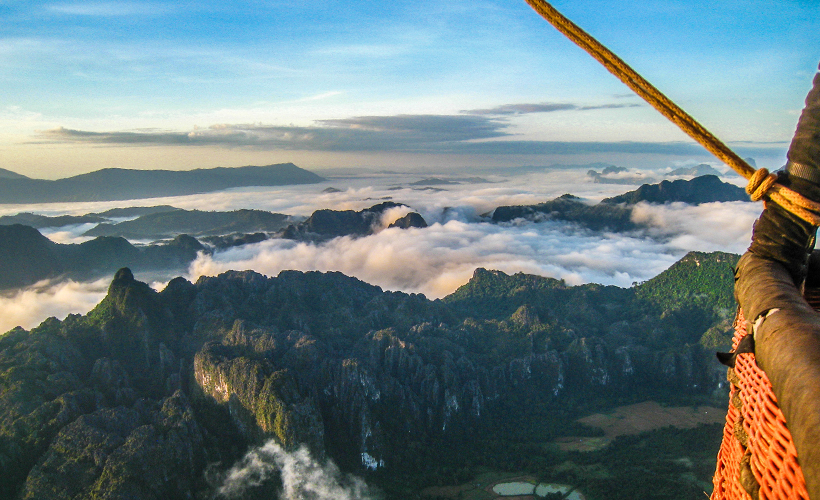“The jade river winds like a blue silk ribbon, and the mighty mountains resemble emerald hairpins.” So wrote Han Yu, a Tang dynasty poet, as he described the Li River in Guilin, China. It is an apt description, albeit one that barely scratches the surface.
When you cast your eyes upon it, you’ll see that the serpentine Li River meanders through silent pinnacled peaks of majestic karst formations. Just when you think it couldn’t possibly get more picture perfect, you turn the corner and come upon an even more enchanting sight.

Floating down the river on our bamboo raft, we passed old villages, where buffalo patrol the fields and graze along the riverbed — indispensable companions to farmers and children alike. Green bamboo groves and old banyan trees added a sense of nostalgia to the river. In some parts, the water skipped and danced over moss-covered rocks. In others, it glistened and glimmered, as if a million stars had fallen from the heavens and now littered the surface of the water.
As you travel further down, right along the river’s edge is Xingping – an ancient, timeless fishing village dating all the way back to the Ming dynasty (1368-1644). It oozes provincial charm, with its welcoming labyrinth of narrow cobblestoned streets and traditional architecture. Just imagine flying eaves, painted rafters and ornately-carved windows. It’s both tranquil and picturesque at once.
However, as quaint as this all is, nothing could have adequately prepared me for the wellspring of emotions I feel upon seeing a cormorant fisherman in his house boat on the river bank.
Cormorant fishing has been a way of life on the Li River for centuries. No rods, no hooks, no bait. Just the natural hunting skill of these great diving birds.
What a privilege it is to meet one of the last FIVE remaining cormorant fishermen, whose families have fished this way for generations. Now in his 70s, I feel a sense of pensive sadness that this unique way of life will completely die out within the next 15 years or so, to be replaced – as it already is – with crass public enactments of cormorant fishing staged by young men and women looking to earn a quick buck from tourists.

As the sun begins to set, this amazing fisherman and his cormorants gives us a demonstration of the way they fish. The mutual trust and affection between man and bird is evident as they perch together on their narrow bamboo raft.
Eventually, the dipping sun turns crimson red and casts its rays of orange and purple across the horizon. The light from the gas lamp and its dancing reflection on the water adds a surreal feel to the scene. As twilight descends and the disappearing sun marks the end of the day, I can’t help but think it also symbolises the end of an era for these last remaining fishermen.
The tremendous majesty and magnificence of the sky, the river and the mountains coupled with the realisation that I’m witnessing an almost extinct tradition has made me reflect on, and acknowledge, my own mortality.
All in all, it was a huge honour to meet and photograph the cormorant fisherman, and of course, to witness the craft he spent his entire life honing. What a beautiful, profound experience.
All photos courtesy of author.
Read our last Travel Tale:
How Travel Has Taught Me To Live In The Present
Here’s your chance to get published on Zafigo! We want your most interesting Travel Tales, from memorable adventures to heartwarming encounters, scrumptious local food to surreal experiences, and everything in between.
They can be in any form and length –short stories, top tips, diary entries, even poems and videos. Zafigo is read by women travellers the world over, so your stories will be shared to all corners of the globe.
Email your stories to [email protected] with the subject line ‘Travel Tales’. Include your profile photo and contact details. Published stories will receive a token sum.





